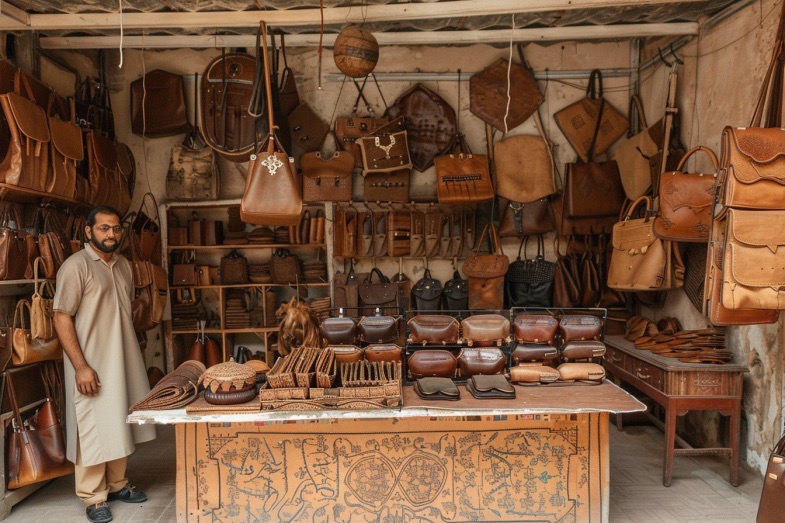Final Journey of a Former North Korean Prisoner of War
SEOUL — On a scorching morning earlier this week, a remarkable scene unfolded at Imjingang Station, the last stop on Seoul’s metro line that brushes against North Korea. A sizable crowd had gathered, fixated on one man: Ahn Hak-sop, a 95-year-old ex-North Korean POW on his way back to the other side of the Korean peninsula border. It was a poignant moment, as Ahn embarked on what he called his final journey, yearning to be laid to rest in the land where he spent much of his life against his will.
Despite being turned away by South Korean officials due to insufficient arrangements, Ahn came as close as he could to crossing the border. Weakened by pulmonary edema, he managed to walk the last stretch to the Unification Bridge with the help of two supporters, clutching a North Korean flag—a rare and unsettling sight in the South. Addressing the reporters and volunteers who gathered in support, Ahn expressed his desire for a burial in a “truly independent land, free from imperialism.”
A Life Defined by Captivity and Struggle
Ahn’s tumultuous journey began at the age of 23 when he was captured by South Korean forces during the Korean War. Prior to his capture, he had joined the North Korean People’s Army under the belief that the South had initiated the conflict. Sentenced to life in prison in 1953, Ahn spent over four decades behind bars before being released on a special pardon.
Labelled a “redhead” for his communist sympathies, Ahn faced challenges reintegrating into society post-release. Despite marrying and fostering a child, he never felt a sense of belonging, residing near the border with the North in a small village in Gimpo.
Unwavering Convictions and Controversial Choices
Despite the opportunity to return to the North in 2000, Ahn opted to remain in the South, hopeful for improved inter-Korean relations and free movement between the two sides. His decision stemmed from a deep-seated belief that leaving would be a victory for the Americans, whom he viewed as impediments to Korean reunification.
A staunch critic of the Seoul-Washington alliance, Ahn remained steadfast in his adherence to North Korean propaganda, attributing the division of the peninsula to American imperialism. Born during Japan’s colonial rule of Korea, Ahn’s early experiences fueled his patriotism and shaped his unwavering convictions.
A Legacy of Defiance and Resilience
Throughout his life, Ahn’s refusal to renounce his North Korean allegiance subjected him to torment and suffering in South Korean prisons. Despite enduring immense hardships, he stood firm in his convictions, symbolizing a legacy of defiance and resilience that defined his existence to the very end.
The Truth Behind Ahn’s Allegations: A Look Into South Korea’s Dark Past
In 2009, the Truth and Reconciliation Commission of South Korea delved into the direct allegations made by Ahn, uncovering a sinister plot to coerce his conversion that involved acts of torture. The findings shed light on the harrowing experiences faced by many prisoners in South Korea, where violence behind bars was all too common.
Ahn vividly recalled the ordeal, sharing that upon regaining consciousness, his first instinct was to check his hands for any traces of red ink. This telltale sign indicated that his captors had forcibly obtained his fingerprint as part of an ideological conversion oath. Despite the brutality he endured, Ahn found solace in the absence of the ink, a small victory amidst the chaos.
The landscape of North Korea has drastically transformed since Ahn’s departure, with Kim Il-sung’s grandson now at the helm of a reclusive nuclear-armed dictatorship. Despite economic advancements, the nation remains plagued by poverty, with Ahn spared from the horrors of the 1990s famine that claimed countless lives. While many risked perilous journeys to escape, Ahn remains steadfast in his views, dismissing humanitarian concerns in the North and defending controversial decisions made by Kim.
Meanwhile, South Korea has undergone its own evolution, transitioning from a military dictatorship to a thriving democracy. The relationship between the two Koreas has been marked by tumultuous shifts, vacillating between animosity and tentative diplomacy. Through it all, Ahn has remained unwavering in his mission to challenge what he perceives as US colonial influence in South Korea, a cause he has championed for three decades.
In a poignant reflection, Ahn expressed his fears of being ensnared in another form of colonial rule, lamenting the loss of political autonomy that defines humanity. His steadfast resistance to perceived foreign dominance serves as a testament to his enduring dedication to his homeland, a sentiment he articulated in a poignant interview with the BBC.



